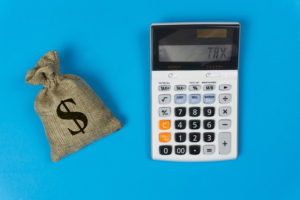 After the landmark decision in South Dakota v. Wayfair (2018), states across the nation rushed to implement Wayfair-related legislation. For most states, this meant implementing economic nexus and/or marketplace facilitation laws to better capitalize on the sales tax opportunities presented by online retail.
After the landmark decision in South Dakota v. Wayfair (2018), states across the nation rushed to implement Wayfair-related legislation. For most states, this meant implementing economic nexus and/or marketplace facilitation laws to better capitalize on the sales tax opportunities presented by online retail.
While it’s taken some states longer than others, 2021 could be the year that every state with a general sales tax finally implements Wayfair-related legislation.
It’s also important to note that states that already have Wayfair-related legislation are still making tweaks and refining their laws to best suit their economic needs.
When first establishing economic nexus within the state, the Kansas Department of Revenue (DOR) announced it would use the Wayfair decision to tax remote sales “to the fullest extent possible permitted by law.” As such, the state does not offer safe harbor or exceptions for small retailers.
A recent bill would have changed that. Kansas SB 50, which was passed by the state congress in March, would have placed a $100,000 annual gross receipts threshold on economic nexus, which is more in line with economic nexus legislation in other states. The bill would have also required marketplace facilitators that reach the threshold to collect and remit the tax on sales into the state through their platform.
However, despite support by state legislatures, Kansas Gov. Laura Kelly vetoed the bill on April 16. While some lawmakers have promised to try and override her veto once lawmakers return from their spring break on May 3, there is no guarantee that the bill will move forward.
As a result, any retailer making sales into the state is still subject to economic nexus, and Kansas remains one of the only states in the nation without Wayfair-inspired marketplace facilitation legislation.
After remaining one of the few states without economic nexus or marketplace facilitation, Florida has finally adopted both. The bill, Florida SB 50, was passed by the state congress and presented to Gov. Ron DeSantis on April 12. On April 19, the bill was approved by the governor and signed into law.
The legislation implements economic nexus in Florida with a $100,000 sales threshold and will go into effect July 1, 2021. The bill also requires specific marketplace facilitators with a physical presence in Florida or that have hit the $100,000 sales threshold to collect and remit sales tax on behalf of third-party sellers starting July 1, 2021.
Now that Florida has implemented Wayfair-related legislation, Missouri, as the only state with a general sales tax without economic nexus or marketplace facilitation legislation, is the last holdout.
State legislators are considering a bill now, SB 153, that would implement both. The state’s legislative session, with convened on Jan. 6, is set to adjourn on May 14.
If you have questions regarding Wayfair-related legislation, or any other state sales tax compliance questions, please contact us today. We’re happy to clarify any multi-state tax issues you’re trying to navigate.



















